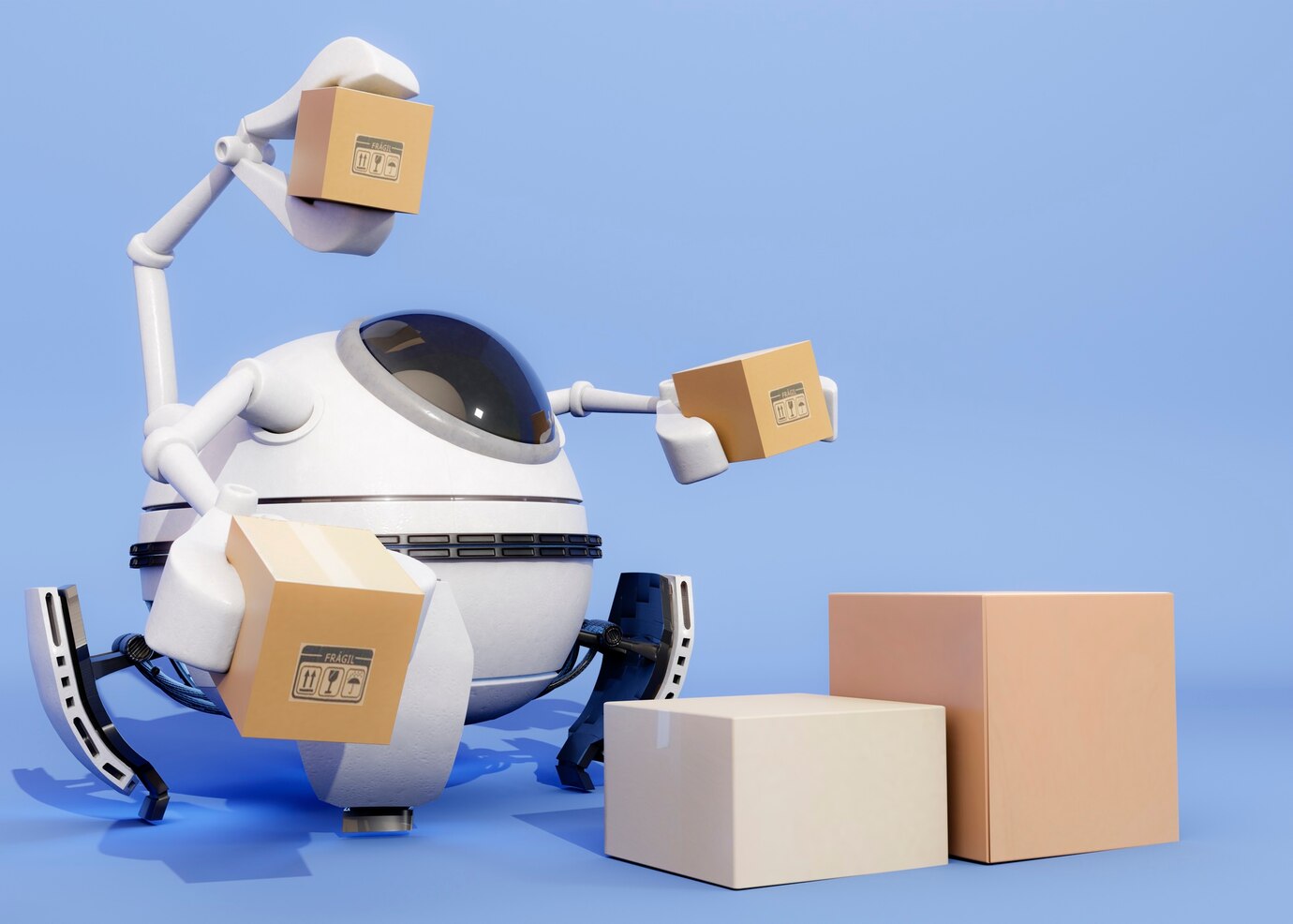
The advent of AI has been a huge boon to delivery services, altering the way they do business in many ways. There are many ways in which artificial intelligence (AI) might improve delivery services, including logistical efficiency and consumer experience. An examination of the primary benefits that AI offers to delivery services is shown below:
Optimizing Routes:
In order to improve routes, AI systems examine real-time traffic data and past delivery trends. This process is known as dynamic routing. Operating expenses, gasoline use, and delivery times are all cut down as a result.
Artificial intelligence adjusts to new circumstances, such as road closures or traffic, so delivery routes can keep up with the ever-changing urban landscape..
Data Mining for Predictions:
Using past data, current weather, and other factors, AI may assist in demand forecasting. By doing so, delivery services may plan ahead for busy periods and deploy resources effectively, eliminating delays caused by bottlenecks.
Inventory Management: Artificial intelligence algorithms maximize stock by anticipating customer needs, minimizing the chances of running out of products or having too much on hand. Order fulfillment and customer satisfaction are both enhanced as a result.
Packing and Sorting Robots:
Robots driven by artificial intelligence may streamline warehouse operations by automating tasks like sorting and packaging. In addition to speeding up the order fulfillment process, this also helps reduce mistakes, which ultimately results in more precise delivery
Artificial intelligence aids in the real-time administration of warehouse space and resources, guaranteeing maximum usage while reducing waste.
Optimizing Delivery to the Last Mile:
Integration of Drones and Autonomous cars: Artificial intelligence makes it easier to combine drones and autonomous cars to cut down on delivery times and expenses for last-mile deliveries. These innovations make it easier to access a wide variety of places, particularly in densely populated cities.
Algorithms powered by artificial intelligence may sift through past data to find the best delivery time windows, taking into account consumer schedules and preferences.
Satisfaction of Customers:
By digesting information about previous purchases and preferences, AI makes it possible to provide customers with individualized experiences. This may be used to improve client happiness and loyalty via targeted marketing, personalized product suggestions, and personalized communication.
Using AI-powered tracking systems, consumers may get real-time information on the whereabouts and status of their delivery.
Anti-Fraud Measures:
To protect the business and its clients from fraudulent activity, AI systems examine patterns of transactions.
Artificial intelligence helps strengthen the broader cybersecurity framework, which in turn safeguards confidential client information and monetary transactions.
Efficient and Reducing Costs:
AI helps automate a lot of procedures, which means fewer mistakes made by humans and more efficient operations overall, which means less money spent.
Delivery services can run at maximum efficiency with the help of AI, which optimizes resource management including personnel management and vehicle fleets.
Flexibility in Response to Industry Shifts:
Because of their scalability and adaptability, AI technologies may grow with delivery firms as they change. Offering a solution that can adapt to changing demand, new market trends, and developing technology, they can help businesses thrive in the future.
In conclusion, delivery companies may optimize their operations, enhance client experiences, and gain a competitive advantage in the ever-changing logistics industry by integrating AI technology. The advantages of AI go beyond only improving efficiency; it also provides delivery organizations with long-term success in a more digitalized and demanding industry.
